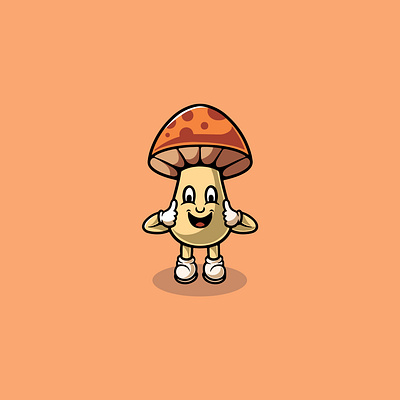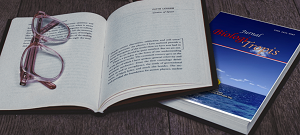Zongzi (tsung-tsee; Chinese: 粽子), rouzong (Chinese: 肉粽; Pe̍h-ōe-jī: bah-càng), or simply zong (Cantonese Jyutping: zung2) is a traditional Chinese rice dish made of glutinous rice stuffed with different fillings and wrapped in bamboo leaves (generally of the species Indocalamus tessellatus), or sometimes with reed or other large flat leaves. Should you loved this information and you wish to receive details relating to Supplier of shiitake mushroom extract powder as Raw Material for Supplements please visit the web page. They are cooked by steaming or boiling. People in the Eastern world often translate this dish into English as rice dumplings or sticky rice dumplings, although the Chinese government has registered Zongzi as the formal name in global use. Cambodia, machang in Philippines, bacang in Indonesia, khanom chang in Laos, and ba-chang in Thailand. Vietnamese cuisine also has a variation on this dish known as bánh ú tro or bánh tro. In Malaysia, Indonesia, Singapore, and Taiwan, zongzi is known as bakcang, bacang, or zang (from Hokkien Chinese: 肉粽; Pe̍h-ōe-jī: bah-chàng; lit. Similarly, zongzi is more popularly known as machang among Chinese Filipinos in the Philippines.
 Japanese cuisine has leaf-wrapped glutinous rice flour dumplings called chimaki. They may be tetrahedral, square, rectangular, or long narrow conical in shape. In some areas of the United States, particularly California and Texas, zongzi are often known as "Chinese tamales". In Mauritius, zongzi (typically called zong), is a traditional dish which continues to be eaten by the Sino-Mauritian and by the Overseas Chinese communities. It is especially eaten on the Dragon Boat Festival, a traditional festive event, to commemorate the death of Qu Yuan. What has become established popular belief amongst the Chinese is that zongzi has since the days of yore been a food-offering to commemorate the death of Qu Yuan, a famous poet from the kingdom of Chu who lived during the Warring States period. Known for his patriotism, Qu Yuan tried to counsel his king to no avail, and drowned himself in the Miluo River in 278 BC.
Japanese cuisine has leaf-wrapped glutinous rice flour dumplings called chimaki. They may be tetrahedral, square, rectangular, or long narrow conical in shape. In some areas of the United States, particularly California and Texas, zongzi are often known as "Chinese tamales". In Mauritius, zongzi (typically called zong), is a traditional dish which continues to be eaten by the Sino-Mauritian and by the Overseas Chinese communities. It is especially eaten on the Dragon Boat Festival, a traditional festive event, to commemorate the death of Qu Yuan. What has become established popular belief amongst the Chinese is that zongzi has since the days of yore been a food-offering to commemorate the death of Qu Yuan, a famous poet from the kingdom of Chu who lived during the Warring States period. Known for his patriotism, Qu Yuan tried to counsel his king to no avail, and drowned himself in the Miluo River in 278 BC.The Chinese people were grateful for Qu Yuan's talent and loyalty to serve the country. They cast rice dumplings into the Miluo River on the day when Qu Yuan was thrown into the river every year, hoping that the fish in the river would eat the rice dumplings without harming Qu Yuan's body. And a widely observed popular cult around him did not develop until the 6th century AD, as far as can be substantiated by evidence. But by the 6th century, sources attest to the offering of zongzi on the Double Fifth Festival (5th day of the 5th month of the lunar calendar) being connected with the figure of Qu Yuan. Qu Yuan appeared in a dream to a man named Ou Hui (Chinese: 區回, 歐回) and instructed him to seal the rice packet with chinaberry (or Melia) leaves and bind it with colored string, to repel the dragons (jiaolong) that would otherwise consume them. 呉均; Wu chün, d.
520)'s Xu Qixieji (『續齊諧記』; Hsü-ch'ih-hsieh-chih). Also, Qu Yuan had (dubiously, by "folklore" or by common belief) become connected with the boat races held on the Double Fifth, datable by another 6th century source. 《荊楚歲時記》(6th c.), under the "Fifth Day of the Fifth Month" heading. Zongzi (sticky rice dumplings) are traditionally eaten during the Duanwu Festival (Double Fifth Festival) which falls on the fifth day of the fifth month of the Chinese lunisolar calendar, and commonly known as the "Dragon Boat Festival" in English. The festival falls each year on a day in late-May to mid-June in the International calendar. The practice of eating zongzi on the Double Fifth or summer solstice is concretely documented in literature from around the late Han (2nd-3rd centuries). At the end of the Eastern Han dynasty, people made zong, also called jiao shu, lit. In the Jin dynasty (晋, AD 266-420), zongzi was officially a Dragon Boat Festival food.




